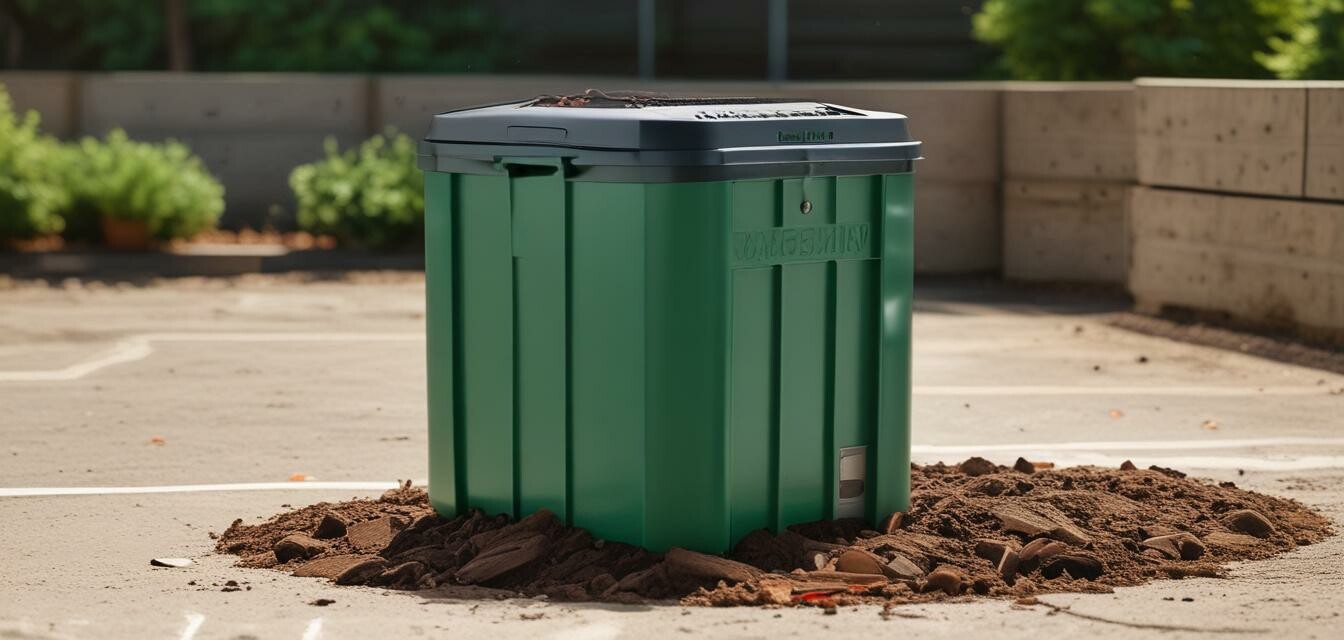
How technology is changing composting in 2024
Key takeaways
- The integration of technology is revolutionizing the composting process.
- Smart composters offer convenience and efficiency.
- Community composting initiatives are gaining momentum.
- Emerging eco-friendly materials are enhancing compost quality.
- Understanding these trends helps consumers make informed decisions.
Composting is not just about turning kitchen scraps and yard waste into nutrient-rich soil; it's about embracing a sustainable future. In 2024, we see a remarkable transformation in how composting is performed thanks to emerging technologies. These advancements are improving user experiences and making composting easier than ever. In this article, we will explore the latest trends and innovations reshaping the composting landscape.
The rise of smart composters
Smart composters are becoming increasingly popular in households and communities. These devices automate the composting process, ensuring that users achieve optimal compost quality with minimal effort. Here's how they are changing the game:
- Efficiency: Smart composters monitor temperature and moisture levels, adjusting themselves to create the best composting conditions.
- Real-time data: Some models connect to your smartphone, providing insights and alerts regarding the composting process.
- Compact design: They are perfect for urban settings, taking up little space while still processing organic waste effectively.
Benefits of using smart composters
| Benefit | Description |
|---|---|
| Convenience | Eliminates the guesswork and manual labor traditionally involved. |
| Speed | Accelerates the composting process compared to traditional methods. |
| Reliability | Ensures consistent results with advanced monitoring features. |
Community composting initiatives
As more communities seek to manage waste sustainably, community composting initiatives are on the rise. These programs unite residents in sustainable practices, encouraging local collaboration and environmental stewardship.
Advantages of community composting
- Community bonding: Engaging in composting together fosters a sense of community.
- Waste reduction: Encourages households to recycle organic waste more effectively.
- Education: Provides opportunities for community learning about sustainability.
Eco-friendly materials in composting
The materials used in composting are also evolving. In 2024, composters are seeing the introduction of new, eco-friendly materials that contribute to compost quality:
- Biodegradable bags: Made from plant-based materials, these are designed for easy composting.
- Advanced carbon sources: New products help balance nitrogen and carbon in compost.
- Innovative additives: These promote faster breakdown of organic matter.
Table of eco-friendly compost materials
| Material | Type | Benefits |
|---|---|---|
| Biodegradable Bags | Carbon Source | Reduces plastic waste, fully compostable. |
| Coconut Coir | Carbon Source | Improves aeration and moisture retention. |
| Worm Castings | Nutrient Source | Adds beneficial microorganisms and nutrients. |
Understanding the impact of technology on composting
Technological advancements in composting are not just about convenience; they are also about fostering sustainability. In a world where waste is a significant concern, smart composters and eco-friendly practices play a crucial role in shifting our habits. They help in:
- Reducing landfill waste and greenhouse gas emissions.
- Encouraging sustainable practices at the community level.
- Improving soil health and plant growth by providing high-quality compost.
Tips for adopting technology in composting
- Start small with a smart composter to experience the technology firsthand.
- Join local composting initiatives to learn from and engage with the community.
- Stay informed about eco-friendly materials that can enhance your composting experience.
The future of composting
As we move forward in 2024, understanding how technology is reshaping composting is vital for any environmentally conscious individual or community. With innovations continually emerging, composting will only become easier and more effective.
By embracing modern solutions, we are not only improving our environmental footprint but also enhancing the quality of our garden produce and contributing positively to our communities and the planet.
Pros
- Convenient and user-friendly solutions.
- Faster composting processes.
- Enhanced educational opportunities in communities.
Cons
- Initial investment cost in smart technology.
- Requires technological knowledge for some users.
In conclusion, the integration of technology in composting, through smart composters and community initiatives, is vital for fostering sustainable living. Grow alongside these innovations and become an eco-warrior in your community!